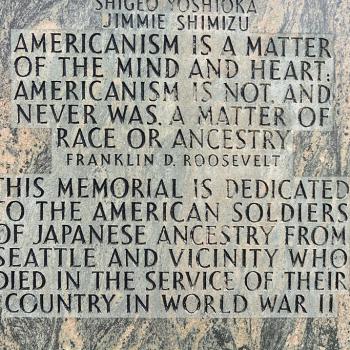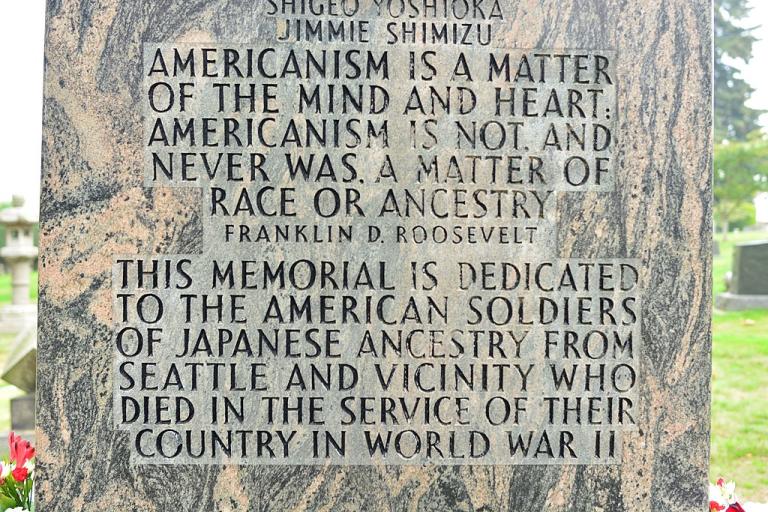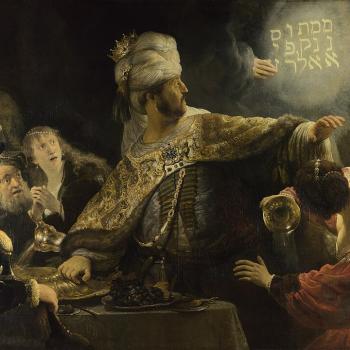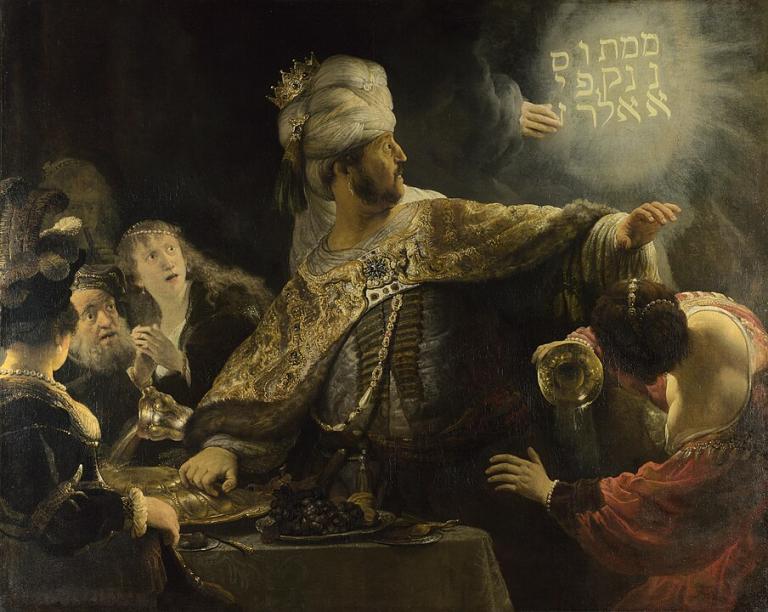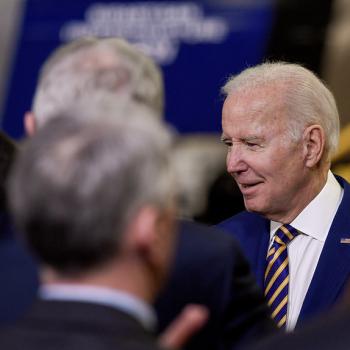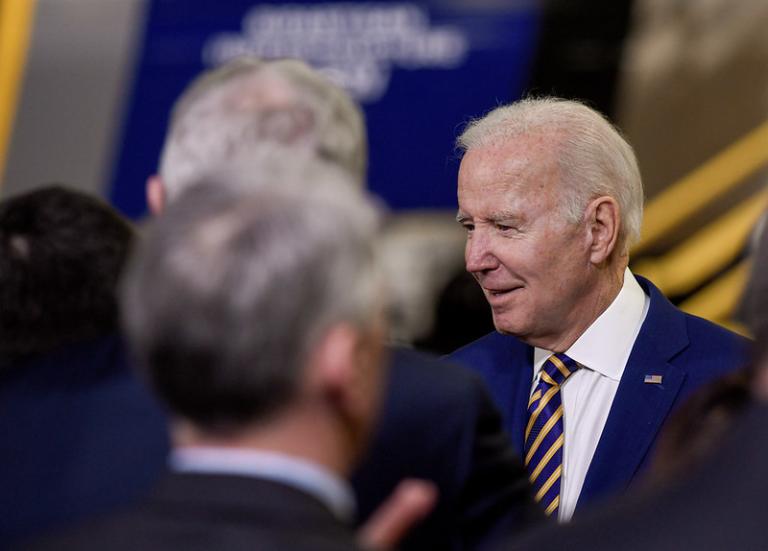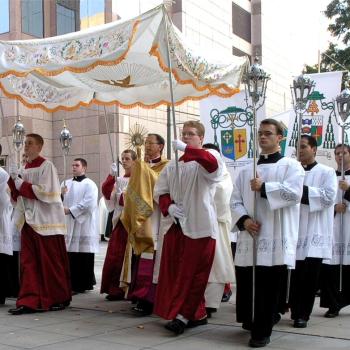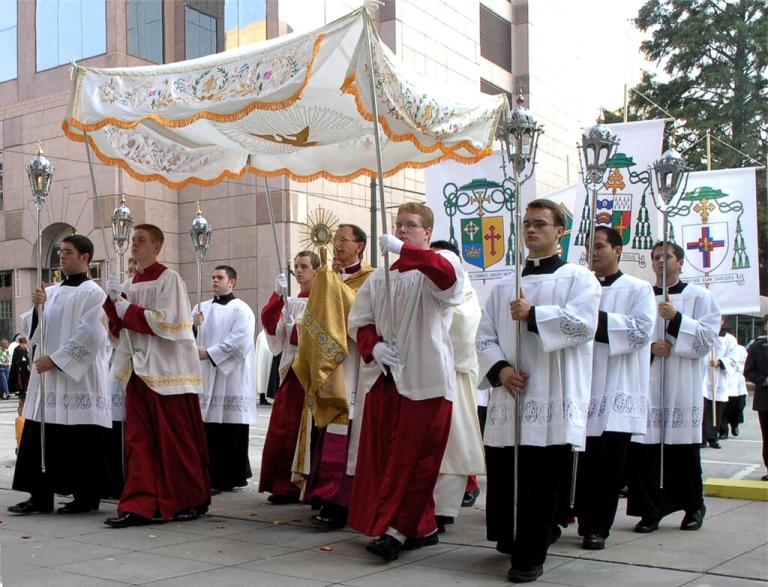While the Republicans were in Milwaukee, some 50,000 Catholics were in Indianapolis for the National Eucharistic Congress, the culmination of pilgrimages and processions across America following a consecrated Host. The goal is a “eucharistic revival,” described as “the joyful, expectant, grassroots response of the Church in the United States to the divine invitation to be united once again around the source and summit of our faith in the celebration of the Eucharist.”
The catalyst for this was two disturbing polls. In 2019, Pew Research asked Catholics what they believe about the bread and wine in Holy Communion, whether they believe that “during Catholic Mass, the bread and wine actually become the body and blood of Jesus.” Or whether they believe that the bread and wine used in Communion “are symbols of the body and blood of Jesus Christ.”
The first alternative is “transubstantiation,” which is the teaching of the Roman Catholic church, the view that the bread and the wine are changed into the body and blood of Christ. Their very “substance” is changed, though the “accidents,” the external appearance of the bread and wine remain. Quite literally, they “become” the body and blood of Jesus. But though this is the official and required dogma of the church, only 31% of Catholics said they believe that!
Conversely, 69% of Catholics–over two thirds–said they believe in the radical Protestant Zwingli’s position that the bread and wine are just symbols.
Not only that, a later survey by Catholic researchers in 2022 found that the percentage that believes in transubstantiation was little changed (35%), but it went on to ask the respondents what they thought the church’s teaching on the subject is. A majority of Catholics (51%) believe that the church teaches that “Jesus is only symbolically present in the consecrated bread and wine.”
The bishops were shocked at this data. They launched a three-year program requiring special teaching about the Eucharist in every diocese, getting laity involved in vigils of adoration of the Sacrament, Corpus Christi processions, and other devotional exercises, all culminating in the National Eucharistic Congress in Indianapolis.
Recently, another survey went out, finding that the laity’s lack of sacramental knowledge might not be so bad after all. Vinea Research, a Catholic outfit, criticized the previous studies for using the word “become.” That is not the language the catechism uses, the organization claimed, or that Catholics are familiar with. So the new alternatives were these:
a. Jesus Christ is truly present in the bread and wine of the Eucharist
b. Bread and wine are symbols of Jesus, but Jesus is not truly present.
This time, when Catholics were asked about the “real presence” rather than transubstantiation, the findings seemed more encouraging. A full 69% said they believe in the real presence–the same percentage that said in the other poll that the elements were just symbols! Vinea concluded,
“[U]sing language more commonly understood by Catholics, Vinea’s research indicates that many more Catholics than originally thought have an authentic understanding of the core Catholic teaching of the real presence of Christ in the Eucharist,” the group said in a press release.
These findings are being hailed as evidence that, in the words of the title of an article on the subject, New study suggests more than two-thirds of Catholics believe the Eucharist is truly Jesus. No, this new study suggests that more than two-thirds of Catholics still don’t believe in transubstantiation. They believe that Jesus is present in the Eucharist, not that He is the Eucharist.
The “real presence” is not really a full “authentic understanding of the core Catholic teaching.” That’s more of a Protestant term, though it’s understood in different ways, used in Lutheranism but also in some Reformed traditions, such as Anglicanism, which speak of a real “spiritual” presence.
Conservative Catholics recognize that the Catholic teaching has to go beyond “presence” language. Peter M.J. Stravinskas makes that point and observes, accurately, that even Martin Luther had a stronger belief than the one suggested in the survey.
To be sure, we Lutherans sometimes speak of the “real presence,” but that’s insufficient to fully describe what we believe about the “sacramental union.” We have to always be able to say, along with Christ, “This is my body.” This is my blood.”
I read one Catholic theologian explaining that transubstantiation, which has to do with Christ’s body and blood, is what makes possible the real presence of the entire Christ, body and soul. OK. The terms can be used together. Similarly, the Lutheran’s sacramental union makes possible the real presence of Christ.
But much of the Catholic discussion of the eucharist on line, even among priests and theologians, is just “real presence.” Does this mean Catholics are drifting away from the doctrine of transubstantiation? Are they recognizing that this teaching is untenable, a quasi-Gnostic or docetic rejection of matter as an illusion? Cath0lic thinkers say much about the sacramental nature of the material world, but transubstantiation denies that: If the bread and wine no longer exist, but are just an illusory appearance, the capacity of the material realm to convey Christ is rejected, not affirmed.
Are Catholics coming around to the Lutheran position? Not really. Maybe they are coming closer to a “sacramental union” understanding of real presence. But for Lutherans, Christ’s presence is not the whole issue. The Small Catechism says of the Sacrament of the Altar, that “It is the true body and blood of our Lord Jesus Christ under the bread and wine, instituted by Christ Himself for us Christians to eat and to drink.” “It is.” The Catechism goes on to say in answer to the question, “How can bodily eating and drinking do such great things?”,
Certainly not just eating and drinking do these things, but the words written here: “Given and shed for you for the forgiveness of sins.” These words, along with the bodily eating and drinking, are the main thing in the Sacrament. Whoever believes these words has exactly what they say: “forgiveness of sins.”
For Lutherans, the Sacrament is not a sacrifice we offer up to God, or a meritorious work, or a devotional offering, or something sinners need to stay away from, as in the Catholic system. Rather, it is the tangible Gospel, Christ’s body given “for you”; Christ’s blood poured out “for the remission of all your sins.” In Holy Communion, we thus receive Christ in faith. For Lutherans, the Sacrament is inextricably connected to justification by faith. I’m not seeing Catholics going that far.
Photo: Blessed Sacrament Procession, Cropped and straightened by JD; original photograph by Fennec., CC BY-SA 2.0 DE <https://creativecommons.org/licenses/by-sa/2.0/de/deed.en>, via Wikimedia Commons




